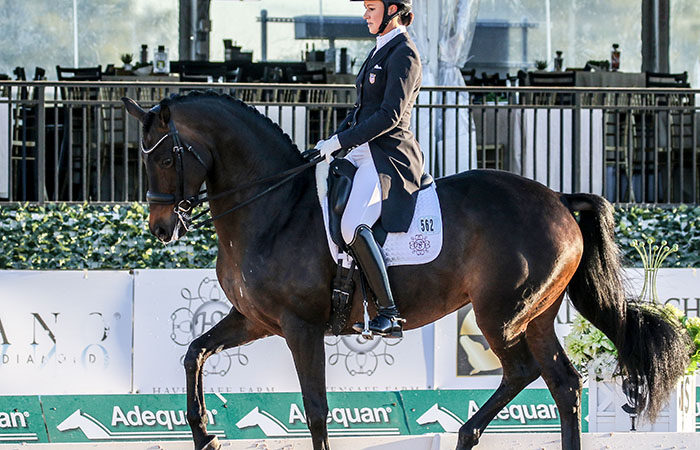FEI Tribunal Dismisses Appeal by Schmidt Family, Ulrike Prunterhaller Against FEI in Case Involving Austria’s Elisabeth Max-Theurer
6 years ago StraightArrow Comments Off on FEI Tribunal Dismisses Appeal by Schmidt Family, Ulrike Prunterhaller Against FEI in Case Involving Austria’s Elisabeth Max-Theurer

By KENNETH J. BRADDICK
An appeal by Edda M. and Maximilian-Emanuel Schmidt, owners, and rider Ulrike Prunthaller against the International Equestrian Federation over its decision to reject complaints against Austrian national federation president Elisabeth “Sissy” Max-Theurer has been dismissed by the FEI Tribunal.
Rejection of the appeal by José A. Rodriguez Alvarez, of Mexico, was the latest step in complaints by the Schmidts and Ulrike against Sissy Max-Theurer, a FEI 5* judge, three-time Olympian who won individual gold at the 1980 Moscow Games and hosts CDIs in both Austria and Germany. Victoria Max-Theurer, 34, her daughter, is a four-time Olympian for Austria.
The Schmidts argued that Sissy Max-Theurer had conflicts of interest in her various roles.
The Schmidt family owns Bartlgut equestrian and several horses that are competed by Ulrike Prunthaller. In 2013, she was banned by the Austrian federation from competition for nine months for alleged “painful and illegal training methods” of horses.
A year ago, the Austrian Ministry of Justice accepted results of an investigation by the Central Public Prosecutor’s Office for Combating Economic Crimes and Corruption that found no evidence to support allegations by the Schmidts involving the substantial financial support of international horse shows provided by Sissy Max-Theurer.
The Schmidts filed the conflict of interest claim with the FEI in December last year but the international governing body of horse sports declined to pursue it.
An appeal against the FEI decision was lodged by the Schmidts with the FEI Tribunal in mid-December.
The Tribunal said in its decision that the Schmidts and Ulrike had to demonstrate that FEI’s decision to not investigate/prosecute the allegations was based on an arbitrary judgment, omitted for some ulterior, extraneous or improper purpose or that the decision was evidently erroneous.
The Appellants, it said, “cannot just merely bring a wide array of allegations forward, but should provide evidence in addition, which has not been the case in the present matter.
“Moreover, and for the sake of completeness, the Tribunal concurs that the elements brought forward by the Appellant in the initial claim did not provide sufficient grounds to the FEI, for considering the allegations therein as valid enough.
“In view of the above, the Tribunal considers that neither the initial claim contained enough grounds to justify the prosecution requested and not enough elements were presented at this instance to possibly consider ordering the FEI to further investigate and/or prosecute the present matter.”

